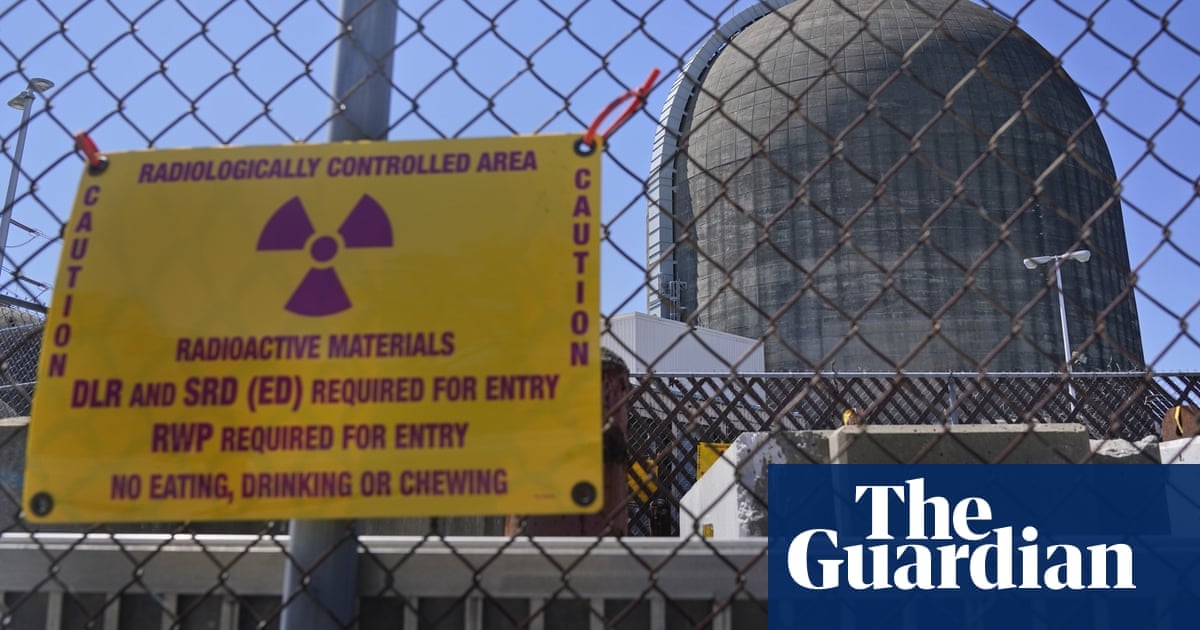Shuttering of New York facility raises awkward climate crisis questions as gas – not renewables – fills gap in power generation
When New York’s deteriorating and unloved Indian Point nuclear plant finally shuttered in 2021, its demise was met with delight from environmentalists who had long demanded it be scrapped.
But there has been a sting in the tail – since the closure, New York’s greenhouse gas emissions have gone up.
Castigated for its impact upon the surrounding environment and feared for its potential to unleash disaster close to the heart of New York City, Indian Point nevertheless supplied a large chunk of the state’s carbon-free electricity.
Since the plant’s closure, it has been gas, rather then clean energy such as solar and wind, that has filled the void, leaving New York City in the embarrassing situation of seeing its planet-heating emissions jump in recent years to the point its power grid is now dirtier than Texas’s, as well as the US average.



Germany’s electric energy emissions steadily went down despite exiting nuclear power because Germany actually invests in renewables.
Analysis of current situation without nuclear power (English translated)
Here, let the german Deputy of the Federal Chancellor and Federal Minister for Economic Affairs and Climate Protection tell you about nuclear energy. Starts at 24:56.
My English isn’t good enough to translate it all in detail, but these are the basics:
Germany shut down all nuclear power plants but 3, which will shut down soon. So we will be nuclear free in the future, no going back from there. Then he talks about the nuclear power plants in France, which are all ailing and will be extremely expensive to repair (at least 1 billion euros per power plant). They are only still working because they belong to the state, otherwise they would have been insolvent long ago. A newly planned nuclear power plant is already so expensive to plan that most investors have backed out. If this power plant is ever built, it will supply the most expensive electricity ever produced in Europe.
You sure, though? "Not least as a result of the energy crisis, greenhouse gas emissions in the energy sector rose by 11 million tonnes of CO₂equivalent or 4.5 percent in 2022. This was due to the increased use of coal. "
Which is not surprising due to volatility of renewables and closing last nuclear power plants. They also import a lot from … France AFAIK.
No nuclear plants were shut down in 2022. Emissions rose because gas was expensive and more coal was burned as a result. The downward trend has since resumed.
In 2023, Germany imported about 12 TWh from France which is about 2% of the total power consumption. Germany tends to export more energy than it imports. Imports and exports are a very normal thing because of the European power grid.
France has its own set of problems with all their nuclear power, namely very high (tax funded) maintenance costs and lack of cooling water in the dry summers.
Import/export is of course a very normal thing. However I bet those imports were mostly during winter and exports during summer. Again, it’s not a problem of averages, it’s a problem of peaks happening mostly during winter. If there is a windless day during winter, Germany would either have to import a lot of energy or burn tons of coal and gas.
Of course France’s nuclear power plants are not without issues, but look at the CO2/pollution emission map for Europe.